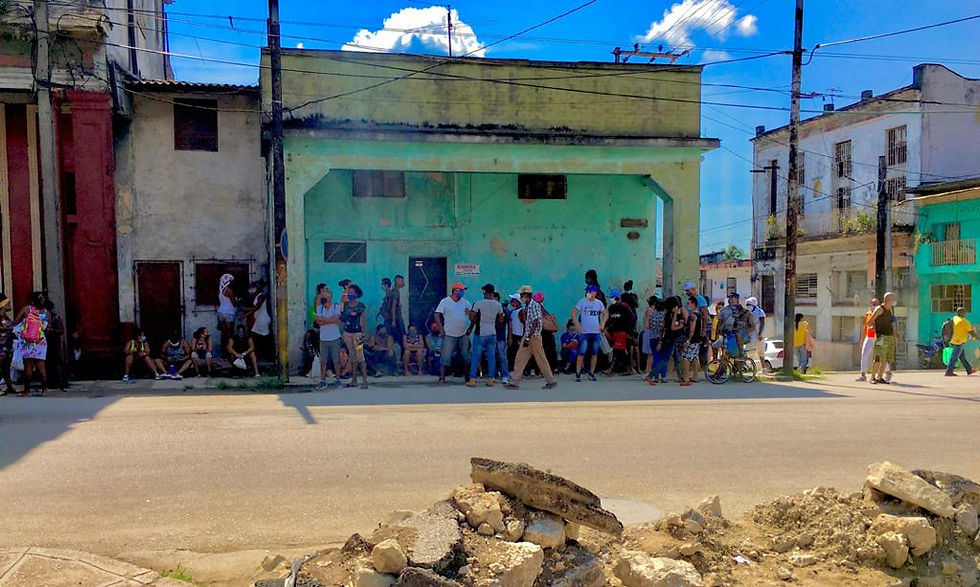SANTERIA
- Cuba Travel
- Apr 14, 2019
- 2 min read
Updated: Oct 4, 2019
AFRO-CUBAN RELIGION
“Quien no tiene de Congo, tiene de Carabalí”
The above title is an old Cuban saying, which roughly translates to, “Anyone who isn’t part Congolese, is part Kalabari.” It is one of the ways in which Cubans recognize their African heritage, which in the case of this popular saying acknowledges roots from either the Congo tribe of west Africa, or the Ijaw speaking tribes of the Niger river delta. Both tribes, and others from the surrounding areas of west Africa put the “Afro” in the Afro-Cuban religion Santeria.
In Cuba everyone believes in a saint, god, or deity, and even young Cubans, with all the skepticism that is so common among us, believe in something. The other night at a party I had a conversation with a friend who had recently gone through a cambio de vida, a change of life. It is a religious ceremony which allows one who is condemned to damnation to exchange their being with another that is saved. You read correctly, but there’s more! This young man from the Cuban province of Camaguey was also saving money so he could “be sainted,” hacerse santo, a very expensive and laborious process. In a country where the average monthly salary is approximately $40 USD a month, the exorbitant price of the ceremony is $1,000 USD. Besides the money, my friend would have to complete several challenges which seemed inhumane to me. According to my friend, once he had completed all the required tasks and challenges, he would have other-worldly help with his career, his destiny, spirituality, physical ailments, and his life would be stable and protected.
Call me what you’d like, but I don’t buy it! I can’t understand how a young man full of life could agree to undergo such hardships, while paying for the privilege, and a sum of money equivalent of over two years’ salary. But that’s Cuba!
The saying, quien no tiene de Congo, tiene de Carabalí, alludes to the ethnic and cultural mixture of Cubans, who beyond their white, black, or brown skin, have a shared ancestry that has contributions from African slaves and Spanish colonizers.
By DARR
Contact us at cubatraveltrips@gmail.com





Comments